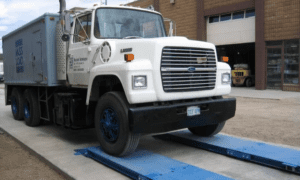When your transmission starts slipping, making strange noises, or outright fails, the dread usually isn’t just mechanical, it’s financial. A faulty transmission is one of the costliest car repairs out there, and replacing it with a brand-new unit can feel like putting a down payment on another car. But before you start scouring dealership websites or bracing for a huge repair bill, it’s worth looking at an option that more and more people are turning to: the remanufactured transmission.
This isn’t just a budget-friendly alternative, it’s a smart, well-engineered solution that often combines reliability with long-term savings. The key lies in understanding how remanufacturing works, what separates it from simply “used” or “rebuilt” transmissions, and how it can make a big difference not just to your wallet today, but to the lifespan of your vehicle as a whole.
What Is a Remanufactured Transmission?
A remanufactured transmission is carefully restored to a like-new condition using a standardized, high-quality process.
This process includes stripping the unit down to its core, cleaning it thoroughly, inspecting every component, and replacing worn parts with new or reconditioned ones that meet or exceed OEM (Original Equipment Manufacturer) specifications. Internal upgrades and software updates are often applied to bring older models up to modern performance standards. After reassembly, the transmission is tested on a dynamometer or other performance equipment to ensure it works flawlessly under real-world conditions.
This differs significantly from a “rebuilt” transmission, which might only replace the parts that were obviously broken. Remanufacturing is more comprehensive and includes failure analysis and preventive replacement of all vulnerable components.
How It Cuts Costs Without Cutting Corners
The price of a remanufactured transmission is significantly lower than a brand-new one, often by thousands of dollars.
Let’s say your vehicle needs a new transmission that would cost $4,500 from the manufacturer. A remanufactured version might come in closer to $2,500 or $3,000. That alone makes a major financial difference, especially if your vehicle is no longer under warranty or not worth investing in brand-new parts.
But the savings don’t stop there. Because remanufactured transmissions are extensively tested and include upgraded components, they often last longer than standard rebuilt versions. That means fewer breakdowns, less labor, and less vehicle downtime in the future.
No Surprises: Quality Control You Can Trust
One of the biggest concerns vehicle owners have is reliability, and for good reason.
A transmission is not a part you want to revisit every couple of years. With remanufactured units, every part that’s likely to fail has already been addressed. Most remanufacturers include upgraded parts to correct known weaknesses in original designs. These aren’t quick fixes; they are designed to solve common failures before they happen again.
This attention to detail often results in warranty coverage that rivals, or even exceeds, what’s offered with new parts. Many trusted remanufacturers offer multi-year warranties, which gives buyers peace of mind and protects the investment.
More Predictable Than Used or Rebuilt Transmissions
Used transmissions, often pulled from salvaged vehicles, can be cheaper, but they’re a gamble.
There’s usually no way to know how the transmission was driven before it was pulled from another car. It might have internal damage, or wear that doesn’t show up until after installation. Rebuilt transmissions are a step up, but they typically only fix what’s obviously broken, not the underlying causes of failure. That means old seals, clutches, and bands might still be in place.
Remanufactured transmissions eliminate that uncertainty. They follow a detailed, uniform process to ensure quality and are tested before they’re even shipped out. It’s this reliability that ends up saving money in the long run, especially when you consider the cost of redoing a bad repair job.
Keeps Older Vehicles on the Road
If your vehicle is over a decade old, chances are it’s not worth investing in a brand-new transmission, nor does it make sense to sell a perfectly usable vehicle just because the transmission failed.
Remanufactured transmissions allow older cars to keep going strong. For models no longer supported by dealerships or automakers, a remanufactured unit can offer a compatible and high-performing solution that keeps the car running for years to come.
This is particularly valuable for drivers who rely on specific vehicles for towing, commuting, or business use and want to avoid the cost and hassle of switching to something new.
The Environmental Angle: Less Waste, More Use
Aside from saving money, remanufacturing is inherently more sustainable.
Instead of melting down and discarding large metal housings and gears, the remanufacturing process reuses and restores them. This reduces landfill waste, conserves raw materials, and requires significantly less energy than building new transmissions from scratch.
Drivers who are conscious of their carbon footprint can feel better about choosing this option, not just because it’s practical, but because it contributes to a more circular, sustainable economy in the automotive sector.
Long-Term Peace of Mind Through Proper Installation
One of the most overlooked parts of saving money on a transmission job is making sure it’s installed correctly.
A poorly installed transmission, regardless of how well it was remanufactured, can lead to early failure, erratic shifting, or fluid leaks. That’s why it’s essential to have it installed by professionals who specialize in this kind of work and understand the specifications for your exact vehicle model.
Some companies combine remanufacturing expertise with professional support and installation guidance. For example, Ace Transmission not only supplies remanufactured transmissions but also ensures each unit is tested under real-world loads and pressure conditions. This helps technicians install the unit with fewer surprises and more predictable outcomes, ultimately protecting your investment.
Warranties That Work in Your Favor
Warranties are a critical part of understanding how remanufactured transmissions save money.
A short-term fix with no warranty might seem cheaper, but the risks are high. If the transmission fails again within months, you’re back to square one, with double the labor and costs.
Remanufactured units from trusted providers often include warranties of one to three years, with some even covering unlimited mileage. This means you’re not just saving on the purchase, you’re also minimizing your financial exposure for the foreseeable future. If something does go wrong, you’re covered.
An Ideal Choice for Fleet Vehicles and Work Trucks
Commercial vehicles, delivery vans, and trucks rack up miles quickly and require dependable parts.
Fleet managers often choose remanufactured transmissions for their balance of cost-efficiency and reliability. Since these vehicles are critical to operations, the cost of unexpected downtime can far outweigh the cost of a transmission. A thoroughly tested remanufactured option gives businesses a way to keep their vehicles running without sacrificing performance or overspending on new OEM parts.
In many cases, fleet operators even stock remanufactured transmissions ahead of time for common vehicle types, reducing wait time and allowing for faster turnaround during repairs.
Final Thought: A Smarter Way to Extend the Life of Your Car
Remanufactured transmissions aren’t just a way to save a few bucks, they’re a proven, practical option that blends performance with value.
By avoiding the high price of new parts and the risk of untested used ones, remanufactured transmissions strike a rare balance: affordable, reliable, and future-proof. Whether you’re looking to extend the life of your car, maintain a work vehicle, or simply make the smartest use of your repair budget, this option is worth serious consideration.
And if you choose to go this route, make sure you’re working with experienced specialists who back their work with both testing and support. That’s the kind of decision that pays off, on the road and in your wallet.



































